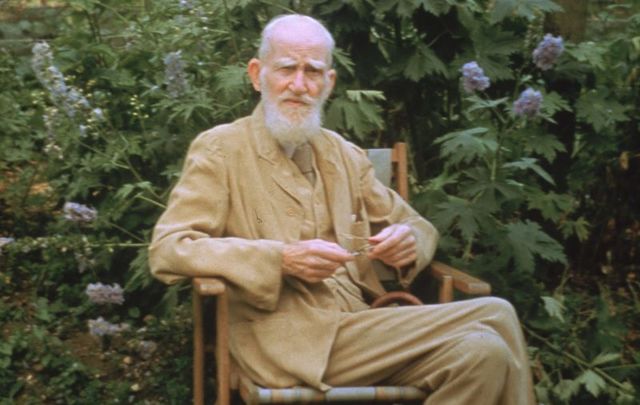Lifestyle
Celebrating George Bernard Shaw: The Legacy of a Literary Giant

On July 26, 1856, renowned playwright and social critic George Bernard Shaw was born in Dublin, Ireland. Shaw’s impact on the literary world is profound, marked by his unique ability to blend sharp wit with social commentary. He remains one of the few individuals to have received both a Nobel Prize in Literature and an Oscar, highlighting his versatility as a writer.
Shaw’s career began in earnest after he moved to London in 1876, where he initially struggled financially. It was not until 1885 that he found his footing as an arts critic. This role allowed him to engage with the cultural landscape of the time, and he soon joined the Fabian Society, a socialist organization aimed at reforming society through gradual changes. His involvement in these circles significantly influenced his writing, infusing it with political and social themes.
Shaw’s Playwriting Journey
In 1895, Shaw began his foray into playwriting. His early works, compiled in collections such as “Plays Unpleasant” and “Plays Pleasant,” showcased his distinctive style that combined humor with pointed social criticism. Notable plays from this period include “Widowers’ Houses” and “Arms and the Man.”
His breakthrough came with the 1912 play “Pygmalion,” which not only won him the Nobel Prize in 1925 but later garnered an Oscar for Best Writing, Screenplay for its film adaptation in 1939. This play exemplified Shaw’s ability to challenge societal norms, focusing on themes of class and identity.
Shaw continued to produce influential works throughout his life, including “Man and Superman” in 1903 and “Saint Joan” in 1923. His third act of “Man and Superman,” titled “Don Juan in Hell,” has gained recognition as a standalone piece. Shaw’s plays often tackled complex topics such as marriage, education, and social justice.
A Lasting Legacy
Despite his numerous accolades, Shaw famously declined offers for political office and other honors, choosing instead to focus on his writing. He passed away at the age of 94 on November 2, 1950, but his legacy endures. His insightful quotes remain relevant, such as “Progress is impossible without change, and those who cannot change their minds cannot change anything.”
Shaw’s contributions to literature and society are invaluable. He was not only a playwright but also a journalist and a co-founder of the London School of Economics. His ability to spark conversations on pressing social issues continues to resonate today.
As we remember Shaw on this anniversary of his birth, it is clear that his works will inspire future generations to question, challenge, and engage with the world around them.
-

 Top Stories3 months ago
Top Stories3 months agoTributes Surge for 9-Year-Old Leon Briody After Cancer Battle
-

 Entertainment4 months ago
Entertainment4 months agoAimee Osbourne Joins Family for Emotional Tribute to Ozzy
-

 Politics4 months ago
Politics4 months agoDanny Healy-Rae Considers Complaint After Altercation with Garda
-

 Top Stories4 months ago
Top Stories4 months agoIreland Enjoys Summer Heat as Hurricane Erin Approaches Atlantic
-

 World5 months ago
World5 months agoHawaii Commemorates 80 Years Since Hiroshima Bombing with Ceremony
-

 Top Stories3 months ago
Top Stories3 months agoNewcastle West Woman Patricia Foley Found Safe After Urgent Search
-

 Top Stories5 months ago
Top Stories5 months agoFianna Fáil TDs Urgently Consider Maire Geoghegan-Quinn for Presidency
-

 World5 months ago
World5 months agoCouple Convicted of Murdering Two-Year-Old Grandson in Wales
-

 World5 months ago
World5 months agoGaza Aid Distribution Tragedy: 20 Killed Amid Ongoing Violence
-

 World5 months ago
World5 months agoAristocrat Constance Marten and Partner Convicted of Infant Murder
-

 Top Stories4 months ago
Top Stories4 months agoClimbing Errigal: A Must-Do Summer Adventure in Donegal
-

 Top Stories4 months ago
Top Stories4 months agoHike Donegal’s Errigal Mountain NOW for Unforgettable Summer Views









